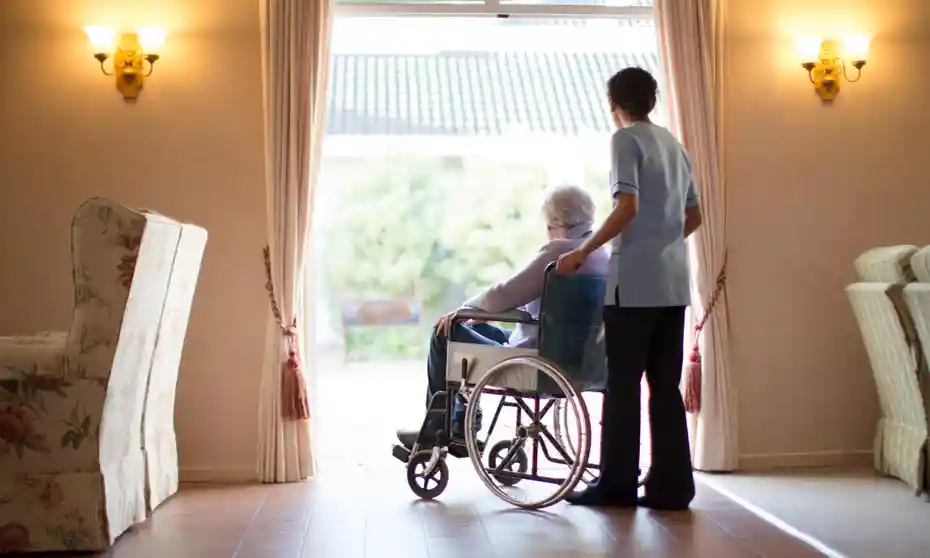The Government has announced an £86m boost to the Disabled Facilities Grant for this financial year, on top of the £86m announced for the next financial year, bringing the total annual funding to £711m.
This funding aims to assist 7,800 more disabled and elderly people in making home improvements.
Wes Streeting, Health and Social Care Secretary, said: “In the first 6 months of this government, work has already begun on stabilising the care sector, investing in prevention, and in carers and care workers.
“The investment and reforms we’re announcing today will help to modernise social care, get it working more closely with the NHS, and help deliver our Plan for Change.
“But our ageing society, with costs of care set to double in the next 20 years, demands longer-term action.”
The Government also introduced immediate steps to modernise social care, such as harnessing care technology to improve the support older people receive to remain at home for longer.
This includes cutting red tape to ensure joint NHS and social care funding is being used effectively and improving career progression for care workers.
Care workers will be better supported to take on additional duties, such as blood pressure checks, to provide more routine checks and care at home without the need to travel to healthcare settings.
The national career structure for care staff will also be expanded to ensure there are clear development pathways and opportunities for career progression.
The Government also plans to create a shared digital platform to enable up-to-date medical information to be shared between NHS and care staff, such as medication history, to ensure people receive the best possible care.
In addition, the Government launched an independent commission into adult social care, to be chaired by Baroness Casey of Blackstock DBE CB, to help reshape the sector to meet the current and future needs of the population.
Baroness Louise Casey of Blackstock said: “Millions of older people, disabled people, their families and carers rely upon an effective adult social care system to live their lives to the full, with independence and dignity.
“An independent commission is an opportunity to start a national conversation, find the solutions and build consensus on a long-term plan to fix the system.
“I am pleased the Prime Minister has asked me to lead this vital work.”
Minister of State for Care Stephen Kinnock said: “Previous attempts to reform adult social care have failed due to a destructive combination of party political point-scoring and short-term thinking.
“Baroness Casey’s commission will build cross-party consensus, and will lay the foundations for a national care service that’s rooted in fairness and equality.
“It will tackle both the immediate issues and the fundamental challenges that must be addressed if we are to get our adult social care system back on its feet and fit for the future.”
The commission will begin work in April 2025 and report in two phases.
The first phase, due in 2026, will identify critical issues facing adult social care and recommend medium-term improvements, while the second phase, reporting in 2028, will outline longer-term solutions for transforming the system.
Amanda Pritchard, chief executive of NHS, said: “A long-term solution for social care is absolutely critical as we build an NHS that is fit for the future through the 10 Year Health Plan, so we really welcome the additional investment to services as well as the independent commission into social care.
“Social care has a huge impact on the NHS, with thousands of people in hospitals who are medically fit for discharge—the current strain the sector is under has significant consequences for both NHS productivity and performance, so we hope this vital action plan and commitment to create a national care service will both help better support people and ease pressure on hospital wards.”
Helen Walker, chief executive of Carers UK, said: “With 4.7 million unpaid carers in England who are the backbone of care within this country, we very much welcome this announcement.
“Adult social care is desperately in need of reform and a sustainable future.
“Families are under intense pressure and providing more care than ever before, many going without breaks, putting their own health at risk and having no choice but to give up work to care.”
Kathryn Smith, chief executive at the Social Care Institute for Excellence (SCIE), said: “With its aim of building cross-party consensus for a future national care service, the Casey Commission has the potential to end decades of gridlock and deliver a lasting settlement that will change the lives of people who draw on care and support for the better.”
Oonagh Smyth, CEO at Skills for Care, said: “Skills for Care welcomes the appointment of Baroness Louise Casey to chair an independent commission to help us to build consensus on the huge potential for adult social care to support people in all our communities to live good lives.”
Jackie O’Sullivan, executive director of strategy and influence at learning disability charity Mencap, said:
“For too long, too many people with a learning disability haven’t received the social care they need to live healthy and happy lives.
“Today’s announcement marks the start of work towards wholesale social care reform and is a significant step in the right direction.”
Baroness Louise Casey of Blackstock said: “Millions of older people, disabled people, their families and carers rely upon an effective adult social care system to live their lives to the full, with independence and dignity.
“An independent commission is an opportunity to start a national conversation, find the solutions and build consensus on a long-term plan to fix the system.”
Oonagh Smyth, Skills for Care CEO, added: “Skills for Care welcomes the appointment of Baroness Louise Casey to chair an independent commission to help us to build consensus on the huge potential for adult social care to support people in all our communities to live good lives.”
















